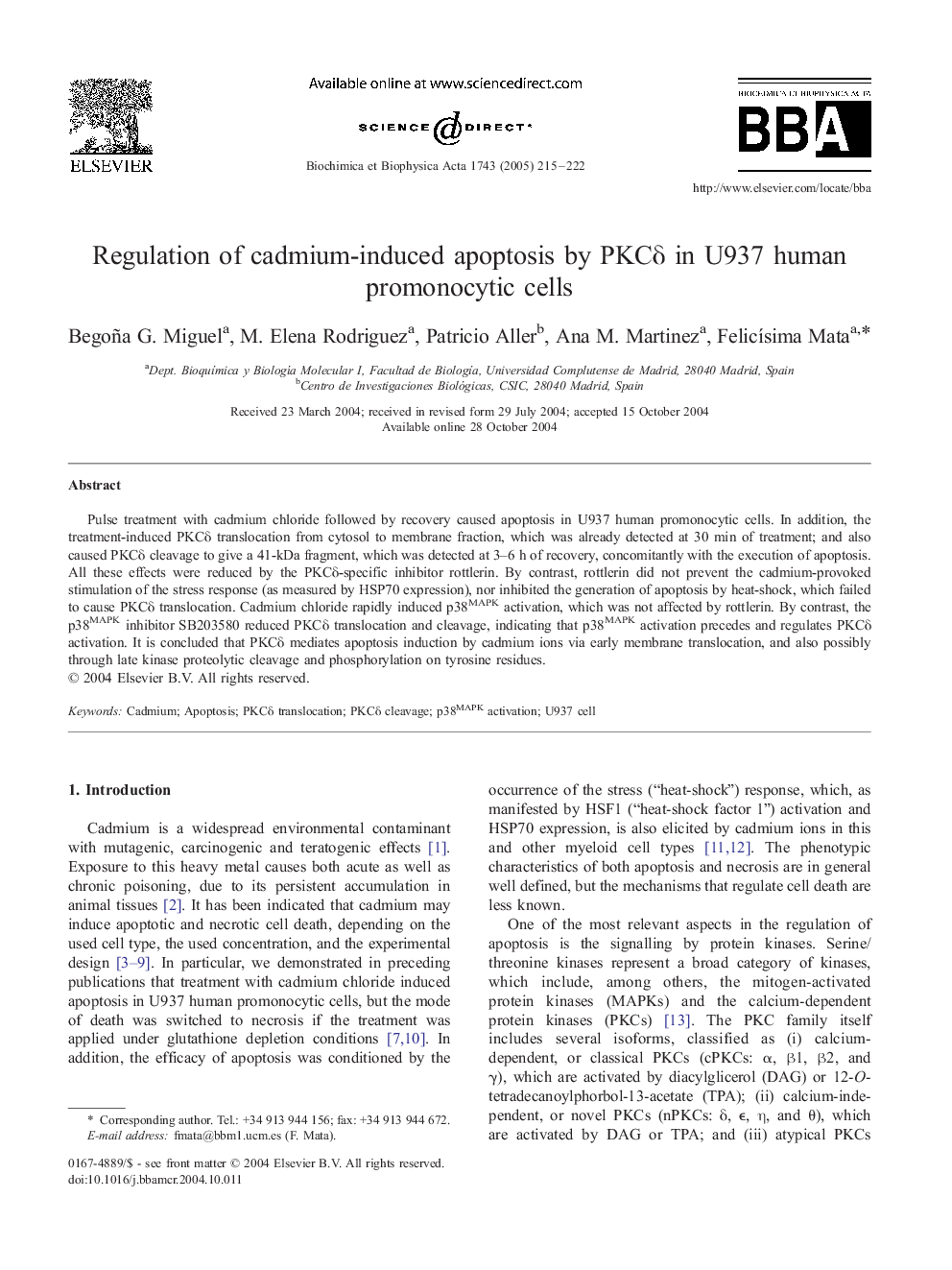| Article ID | Journal | Published Year | Pages | File Type |
|---|---|---|---|---|
| 10803216 | Biochimica et Biophysica Acta (BBA) - Molecular Cell Research | 2005 | 8 Pages |
Abstract
Pulse treatment with cadmium chloride followed by recovery caused apoptosis in U937 human promonocytic cells. In addition, the treatment-induced PKCδ translocation from cytosol to membrane fraction, which was already detected at 30 min of treatment; and also caused PKCδ cleavage to give a 41-kDa fragment, which was detected at 3-6 h of recovery, concomitantly with the execution of apoptosis. All these effects were reduced by the PKCδ-specific inhibitor rottlerin. By contrast, rottlerin did not prevent the cadmium-provoked stimulation of the stress response (as measured by HSP70 expression), nor inhibited the generation of apoptosis by heat-shock, which failed to cause PKCδ translocation. Cadmium chloride rapidly induced p38MAPK activation, which was not affected by rottlerin. By contrast, the p38MAPK inhibitor SB203580 reduced PKCδ translocation and cleavage, indicating that p38MAPK activation precedes and regulates PKCδ activation. It is concluded that PKCδ mediates apoptosis induction by cadmium ions via early membrane translocation, and also possibly through late kinase proteolytic cleavage and phosphorylation on tyrosine residues.
Related Topics
Life Sciences
Biochemistry, Genetics and Molecular Biology
Biochemistry
Authors
Begoña G. Miguel, M. Elena Rodriguez, Patricio Aller, Ana M. Martinez, FelicÃsima Mata,
